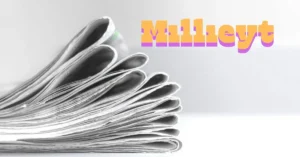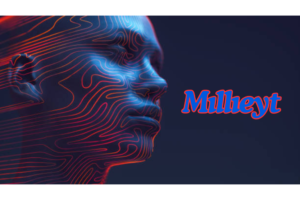Milliyet is one of Turkey’s most recognized and long-standing newspapers, holding a prominent position in the country’s media landscape. With a history spanning over seven decades, Milliyet has played a significant role in shaping public opinion and informing its readers on national and international issues. This guide delves into the history, influence, editorial stance, and evolution of Milliyet, providing a detailed overview of its place in Turkish journalism.
Historical Background
Milliyet was first published on May 3, 1950, by Ali Naci Karacan, a well-known figure in Turkish journalism. The newspaper quickly gained popularity due to its comprehensive news coverage and commitment to objective reporting. Initially, it focused on delivering news with a balanced perspective, aiming to serve as a reliable source of information for the Turkish public.
In 1979, the newspaper was sold to the Karacan family’s business partner, Aydın Doğan, who later became one of Turkey’s most powerful media moguls. Under Doğan’s ownership, Milliyet became part of the Doğan Media Group, which further expanded its influence. The newspaper was known for its investigative journalism, in-depth analysis, and willingness to tackle controversial topics, making it a respected publication among Turkey’s intellectual circles.
Editorial Stance and Content
Over the years, Milliyet has maintained a centrist stance, often balancing between liberal and conservative views. This centrist approach has allowed the newspaper to appeal to a broad audience, including both urban and rural readers. Milliyet covers a wide range of topics, including politics, economy, sports, culture, and international news. The newspaper is also known for its focus on secularism, democracy, and modernization, reflecting the principles of Turkey’s founding father, Mustafa Kemal Atatürk.
One of the key features of Milliyet’s editorial content is its commitment to quality journalism. The newspaper has a reputation for providing well-researched articles, insightful commentaries, and exclusive interviews with prominent figures. Milliyet’s investigative reports have often led to public debates and political discussions, highlighting the newspaper’s role as a watchdog in Turkish society.
In addition to its political coverage, Milliyet also places a strong emphasis on cultural and social issues. The newspaper regularly features articles on art, literature, cinema, and music, catering to readers with diverse interests. Its sports section is particularly popular, offering comprehensive coverage of football, basketball, and other major sports events.

Digital Transformation and Online Presence
Like many traditional newspapers, Milliyet has faced significant challenges in the digital age. The rise of the internet and social media has transformed the way people consume news, leading to a decline in print circulation. Recognizing the need to adapt, Miliyet launched its online edition in the early 2000s, becoming one of the first Turkish newspapers to establish a strong digital presence.
Milliyet’s website, Miliyet.com.tr, has since become a major news portal in Turkey, attracting millions of visitors each month. The website offers a wide range of content, including breaking news, opinion pieces, videos, and interactive features. It also provides live coverage of major events, allowing readers to stay informed in real-time.
The digital transformation has not only expanded Milliyet’s reach but also changed its editorial approach. The newspaper has embraced multimedia journalism, incorporating videos, podcasts, and infographics into its online content. Social media has also become an integral part of Milliyet’s strategy, with the newspaper actively engaging with its audience on platforms like Twitter, Facebook, and Instagram.
Ownership Changes and Political Pressures
Milliyet’s ownership has changed several times over the years, each transition reflecting broader shifts in Turkey’s media landscape. In 2011, the newspaper was sold to the Demirören Group, a conglomerate with close ties to the Turkish government. This acquisition marked a significant turning point for Milliyet, raising concerns about its editorial independence.
Under Demirören’s ownership, Miliyet has faced increasing political pressure, leading to criticism that the newspaper has softened its stance on controversial issues and become less critical of the government. Several prominent journalists and columnists have left the newspaper, citing concerns over editorial freedom and censorship. Despite these challenges, Miliyet continues to be a major player in Turkish media, although its role as a critical voice has diminished.

Milliyet in Today’s Media Landscape
Today, Milliyet remains one of Turkey’s leading newspapers, but it operates in a media environment that is vastly different from the one in which it was founded. The concentration of media ownership, political polarization, and the rise of digital platforms have all contributed to the challenges faced by traditional newspapers like Miliyet.
Nevertheless, Milliyet’s legacy as a pioneer in Turkish journalism endures. The newspaper’s commitment to quality journalism, its role in shaping public discourse, and its ability to adapt to changing times have cemented its place in Turkey’s media history. While it may no longer be the bastion of independent journalism it once was, Milliyet continues to inform, engage, and influence its readers, reflecting the complexities of modern Turkish society.
Conclusion
Milliyet’s journey from a small newspaper to a significant media powerhouse mirrors the broader changes in Turkey’s political, social, and media landscape. As it navigates the challenges of the digital age and political pressures, Miliyet’s ability to maintain its editorial integrity and adapt to new realities will determine its future role in Turkish journalism. For now, it remains a vital source of news and information for millions of Turks, continuing its long-standing tradition of informing the public.




